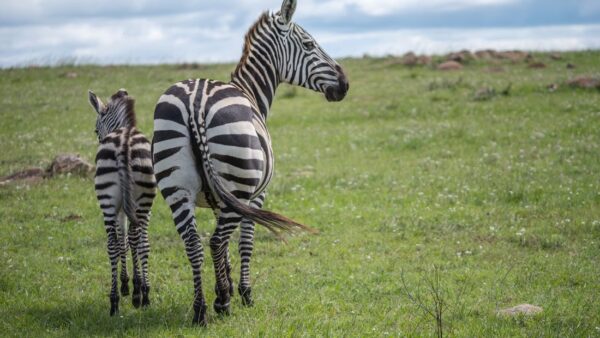Sure it is easy to lose weight on a plant-based diet considering vegan/ vegetarian food is naturally lower in fats/ calories and higher in fiber content. Fiber adds bulk to food and increases your feeling of satiety, ensuring you do not overeat. Thus, it is naturally easy to watch the waistline on a plant-based diet without restricting yourself too much. But what about gaining muscle mass on a plant-based diet?
This question was the reason it took me five years to transition from being vegetarian to being vegan. Being in the fitness industry myself and constantly working on improving my physique, at one time I dreaded dropping dairy and supplements from my diet in the fear of losing muscle mass. It was when I finally came across the book ‘The China Study’ that I decided to make the leap and never look back. I have since competed in bodybuilding and continue to build muscle on a vegan diet. This blog details scientific studies on the advantages a plant-based diet has on building muscle mass.
Table of Contents
Anti- Inflammatory

Keeping macros and calories aside, at the root of things, what is muscle mass really? It is when you challenge your muscle fibers to a point where there are micro-tears. This process forces the muscles to rebuild and grow. To build muscle mass, you need to literally break the muscles by challenging or training them.
Like any sport, the longer time you can invest towards training them, the faster and stronger they will grow. Thus, fast recovery is extremely important for anyone trying to gain muscle mass. To ensure your body recovers fast, you would want to feed it with food that do not cause inflammation.
‘Inflammation (from Latin: inflammation) is part of the complex biological response of body tissues to harmful stimuli, such as pathogens, damaged cells, or irritants. Animal meat and dairy lead to inflammation. Even a single meal with meat and eggs can cause a spike in inflammation that peaks at about four hours after consumption and stays for hours. The arteries (responsible to carry the blood from the heart to the organs) stiffen due to this inflammation and their ability to carry blood reduces in half! Note, this is not years after eating meat, but after just one meal. Click the source cited below to read the full research if interested.
The same effect is also seen in our lungs. Within hours of eating a high-animal fat meal, our airways get inflamed and cut the oxygen supply to almost half its capacity. Now imagine hitting the gym with half your cardiovascular capacity. How are you expecting to give your 100% and expect muscle growth?
As little as half a walnut per day cut’s the risk of dying from chronic inflammatory diseases in half. Plant-based foods are extremely high in anti-inflammatory agents. In fact, click the link below and view this study which shows that when certain fruits like avocados are added to the meal with meat, they help blunt the curve for inflammation which otherwise is caused by meat. The phytonutrients, which are only found in plant-based foods, prevent inflammation, help with faster recovery, and over are a better option for meat and dairy.
Testosterone and Cortisol

These are two extremely important hormones when it comes to muscle building. It is generally suggested to avoid drinking alcohol during a muscle-building program. This is really not much to do with the calories in alcohol or the junk food one tends to binge eat after consuming alcohol. But something even more important. Alcohol tends to raise the estrogen levels in the body (female sex hormone) and drops the testosterone hormone (male sex hormone). Even a single drink has an immediate effect on the hormonal fluctuation in the body.
A key feature of the hormone estrogen is to store body fat. This is biological in nature, since a female body also carries offspring, the extra layer of fat is healthy for a female body in the anticipation of an upcoming offspring. The key feature of testosterone is protein synthesis or helping the body rebuild muscle fibers using proteins. Similar to alcohol, meat also has a direct effect on testosterone levels. Even a single serving of red meat, immediately plumages the testosterone and dairy even increase estrogen levels in the body.
Meat is also linked with a rise in cortisol levels in the body. Cortisol is a hormone that is released in response to stress. Just like testosterone, a single serving of meat is enough to raise cortisol levels. Imagine having meat for every single meal then. People with high meat consumption also have a higher risk for chronically high cortisol-related diseases.
If you look at bodybuilders who consume excess meat, in the months leading up to their competition, testosterone levels drop by 75% and cortisol levels rise by 100%. Below is a graph of bodybuilders tested around their competition. This study was done on natural bodybuilders so the effect is not because of steroids or external drugs.
But what about proteins?

Plant-based foods have proteins too, but you probably already know that. Let’s first talk about the daily protein requirements of the body according to the DRI (Dietary requirement intake). This number has been set to 0.8g per kg body weight. Note, it is NOT per pound, like a commonly misunderstood myth advertised by the supplemental industry. Ok, but this number is for the common man. What if someone wants to build muscle mass? What about athletes who train 4-6 hours a day and have higher requirements than the mass? Even for people with high activity levels and those looking to build muscle mass, the maximum intake of protein suggested before it starts becoming dangerous for the body is about 1.2- 1.5g/ kg body weight.
But why does this have to come from plants? What if we got our protein fulfilled from animal sources such as whey/ casein and stayed within the maximum limit. Higher protein food intake has been linked to higher levels of IGF-1. IGF-1 is basically hormone-like insulin but promotes growth and is anabolic (muscle building) in nature. The body, however, does not know how to handle too much IGF and on the contrary, if the level rises too much, it leads to tumors and promotes cancer. You also get an IGF spike with plant-based proteins, but surprisingly, this does not lead to tumors, if anything, it suppresses them.
But isn’t animal protein a better quality protein?
Proteins are broken down into something called amino acids. Nine of these amino acids are not found in the human body and must be injected through food only. It was earlier believed that plant= based foods did not contain some of these nine amino acids. However, multiple studies have since proven that except gelatin, all food (plants and animals) contain all nine amino acids.
If you are someone who calculates macros or calories, you know that reaching up to 1.8g proteins/ kg body weight through plant-based food is really a piece of cake, even without plant-based protein powders. But what you do notice though is that it is impossible to load up on vegan proteins while keeping carbs low. Most vegan protein sources are also high in carbs, such as lentils and beans. Here it is important to understand that our muscles are made of proteins AND carbs. Not protein alone. In fact, carbs help with protein synthesis. especially while trying to gain muscle mass, you want to keep about 60% of your calories coming from complex carbs. If you get too many proteins (if I had to put a number then it would be anything about 30% of the total calories) and not enough carbs, the excess proteins are converted into glucose and even stored as fat. You would rather get adequate carbs, body’s primary source of energy to be broken down to glucose for energy and instead use proteins to build muscles.
Plant-based foods are lower in calories. Not ideal for muscle gain.

Like you would do in any other type of diet, for gaining muscle mass, you need to stay in a caloric surplus to stay in an anabolic state. You want the excess calories coming in from proteins and carbs, while you also challenge your muscle fibers through any form of strength training.
When it comes to plant-based food, it is not about ‘how much you eat but how calorically dense is the food that you choose. Because plants are naturally higher in fiber and fill you up fast, you cannot practically sit to eat 4 cups of broccoli in the name of health. It is rather suggested you choose foods that are dense in calories naturally. Like dates, nuts and certain fruits. Check this video where I have detailed how you can make your breakfast smoothies itself 1000 calories. The video also has few other calorically rich recipes.
All of the above being said, there is no real study I could find that proves that building muscle mass on a plant-based diet is any faster than doing the same eating meat and dairy. That’s true, but consuming meat/ dairy also comes in with elevated cholesterol levels, diabetes, hypertension, arthritis, and a whole lot of other diseases. So think about it, what would be the point of being shredded, if you eventually are dead. If there is a healthy way to clean bulk, why not approach that. The amount of hard work it takes to gain lean muscle mass remains the same no matter what process you choose.
Want a Plant-based Diet and Workout Plan as per your body type? Head over to roshnisanghvi.com to know more.
Contributed by Roshni Sanghvi, a vegan fitness expert shows us how to lead a healthy disease-















